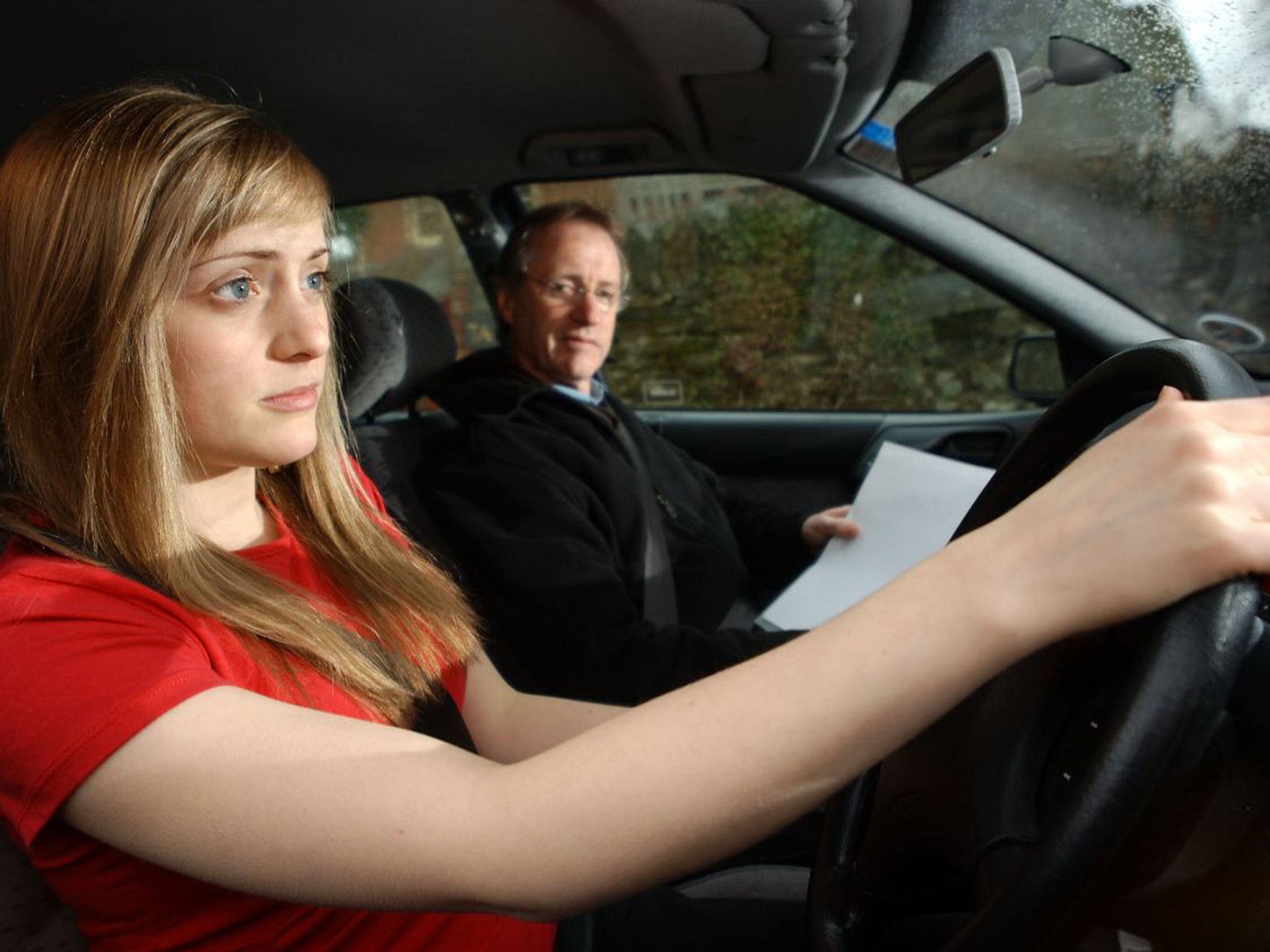Driving tests: Government reforms and shortage of examiners means longer waits for learner drivers
Hasty merger has seen waiting times increase from five to eight weeks in recent months

A shortage of driving-test examiners and difficult government reforms have led to would-be motorists suffering long delays before being able to take their tests.
The Driving and Vehicle Standards Agency (DVSA) was formed by a hasty merger of the Vehicle and Operator Standards Agency and the Driving Standards Agency in April. Ever since, it has missed its target of providing aspiring drivers with a test within six weeks of applying.
The new body was suffering from a shortfall of 60 examiners when it started. It is also suffering morale problems, according to a staff survey published this month.
Transport minister Stephen Hammond said at the DVSA's launch that the merger "offers the opportunity to increase efficiency", while its first business plan stated "annual average waiting time will be no longer than six weeks for car practical tests".
Since then, the average wait for a test has been no less than 6.2 weeks, peaking at nearly eight weeks in August. The latest available figure, for October, showed that the wait for a test was almost seven weeks.
In the three months before the merger the waiting time was just over five weeks. Staff have struggled to adjust to being part of a more complicated organisation. The DVSA is responsible for conducting 1.6 million practical tests a year, as well as inspecting nearly 800,000 commercial vehicles and overseeing 28 million MOT tests.
The staff survey showed that nearly one in four DVSA staff want to leave within the next year, while only two-thirds of them agreed with the statement that they understood the DVSA's purpose.
Richard Burden, the shadow Roads spokesman, said: "The Government's reforms are plunging the motoring agencies into chaos. The DVSA has been hit by a sackful of resignations in its first nine months and now we know how badly ministers' reorganisation is undermining morale."
A DVSA spokesman insisted the organisation is "on track" to hit the six-week average waiting time for 2014-15 as a whole. He added: "Demand for driving tests has risen, and we are recruiting more examiners to meet this increased demand. We expect to see some fluctuation in waiting times across the year as demand is traditionally higher over the summer months.
On the poor staff survey results, the spokesman said: "We will be working to address areas of concern and will ensure that all staff are fully engaged in this process."
In a separate issue, Justice minister Mike Penning has revealed that fines for most major driving offences in England and Wales have substantially increased since the coalition came to power in 2010. Then, the average penalty for failing to stop after an accident was £190.02 against £222.04 in 2013; the typical fine for driving without insurance increased from £285.58 to £346.29.
The fines are likely to become more severe. Mr Penning said that offences are "have very serious and sometimes devastating consequences for victims and their families – that is why the Government is reviewing driving offences and penalties".
Subscribe to Independent Premium to bookmark this article
Want to bookmark your favourite articles and stories to read or reference later? Start your Independent Premium subscription today.

Join our commenting forum
Join thought-provoking conversations, follow other Independent readers and see their replies